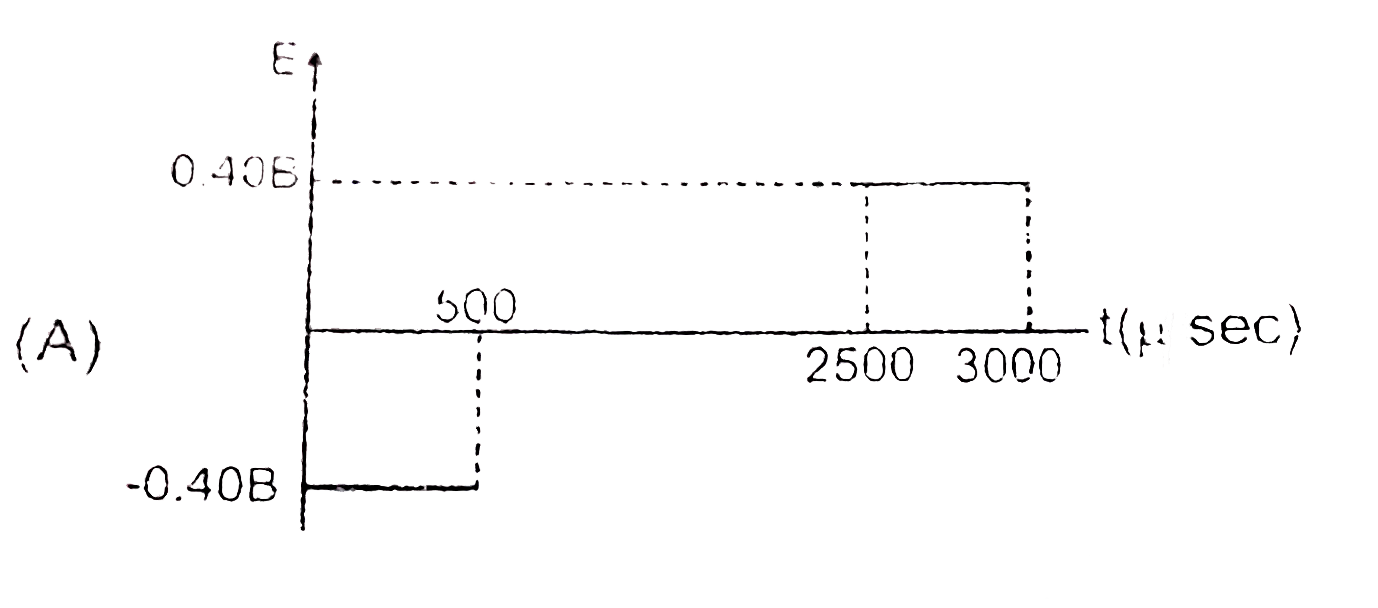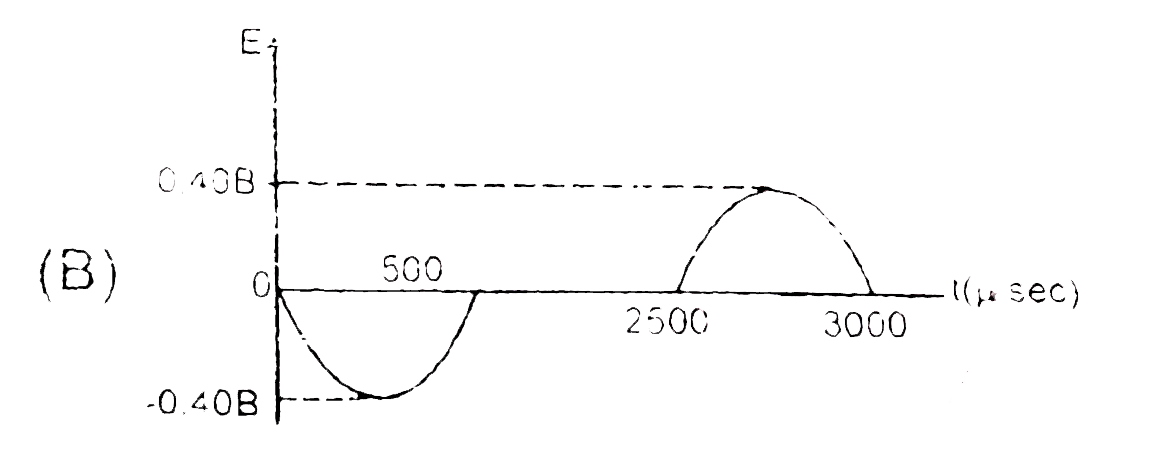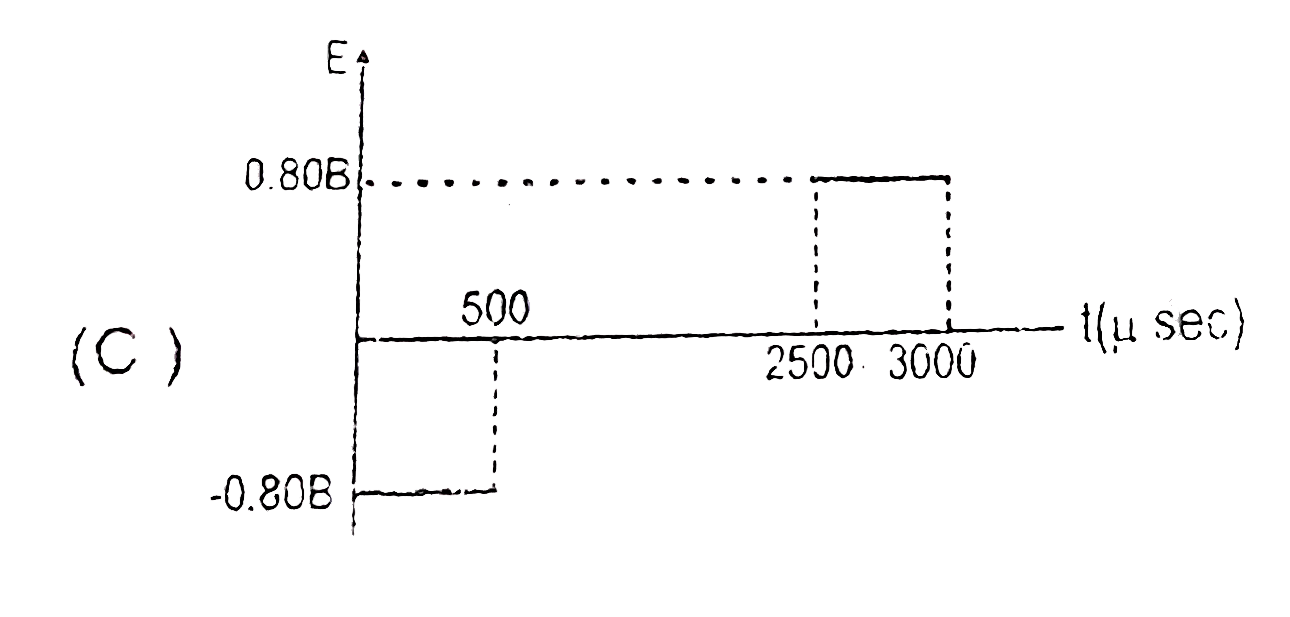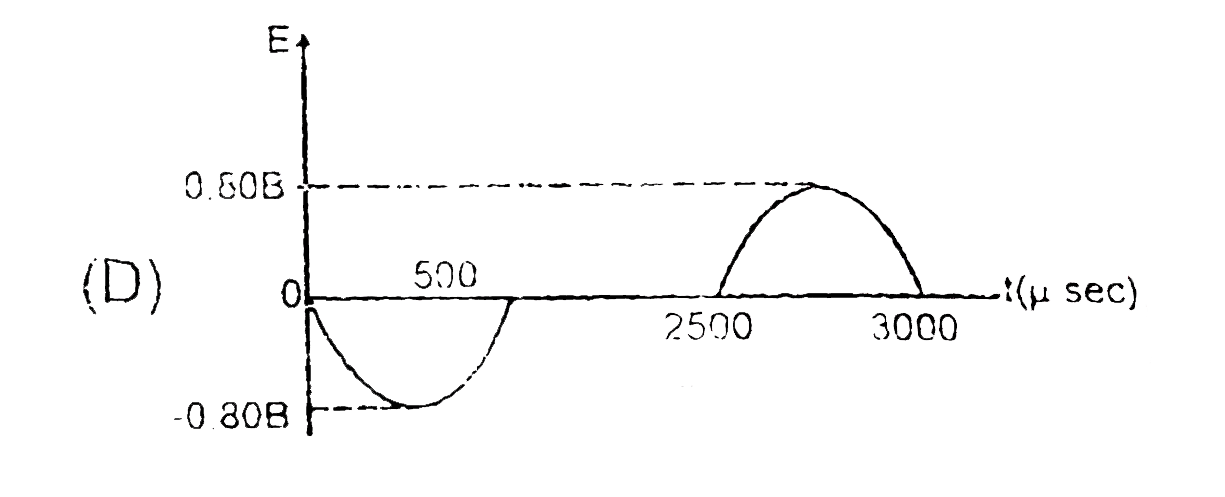Explore topic-wise InterviewSolutions in .
This section includes InterviewSolutions, each offering curated multiple-choice questions to sharpen your knowledge and support exam preparation. Choose a topic below to get started.
| 4151. |
The total number of tubes of induction passing normally through the given area is called as |
|
Answer» NORMAL ELECTRIC induction |
|
| 4152. |
Two cells with same e.m.f. 'E' and different internal resistances r andr, are connected in series to an external resistance 'R'. The value of R so that the p.d. across the first cell be zero is |
|
Answer» `SQRT(r_1 r_2)` |
|
| 4153. |
A flat plate is moving normal to its plane through a gas under the action of a constant force F. The gas is kept at a very low pressure. The speed of the plate v is much less than the average speed u of the gas molecules. Which of the following options is/are true? |
|
Answer» The pressure difference between the leading and TRAILING faces of the plate is proportional to uv |
|
| 4154. |
A string 120 cm in length sustains a standing wave, with the points of string at which the displacement amplitude is equal to sqrt(2 mm being separated by 5.0 cm, Find the maximum displacement amplitude. Also find the harmonic corresponding to this wave. |
|
Answer» Solution :From figure points A, B, C, D and E are having equal displacement amplitude. Further `x_(E)-x_(A)=lambda=4xx15=60 cm` As `lambda=(2l)/(p)=(2xx120)/(p)=60` `:.p=(2xx120)/(60)=4` So, it corresponds to 4th harmonic. Also, distance of node from A is 7.5 cm as distance between B and C is 15 cm and node is between them. TAKING node at origin, the amplitude of stationary wave can be WRITTEN as `a=A sin kx` Here `a= sqrt(mm), k=(2PI)/(lambda)=(2pi)/(60) and x=7.5 cm` `:. sqrt(2)=A sin((2pi)/(60)xx7.5)= A "sin" (pi)/(4)` Hence A=2 mm. 
|
|
| 4155. |
Out of the three wave equations y'(x,t) and the resultant y' (x, t), which wave would you actually see on the string? |
|
Answer» y'(X,t) |
|
| 4156. |
The figure shows a transparent slab of length m placed in air whose refractive index in x direction varies as mu = 1 + x^(2)(0 lt x lt 1). The optical path length of ray R will be |
|
Answer» 1M |
|
| 4157. |
In Figure, a broad bcam Incident light of light of wavelength 630 nn is sent directly downward through the top plate of a pair of glass plates touching at the left end. The air between the plates acts as a thin film, and an interference pattern can be seen from above the plates. Initially, a dark fringe lies at the left end, a bright fringe lies at the right end, and nine dark fringes lie between those two end fringes. The plates are then very gradually squeezed together at a constant rate to decrease the angle between them. As a result, the fringe at the right side changes between being bright to being dark every 15.0 s. (a) At what rate is the spacing between the plates at the right end being changed? (b) By how inuch has the spacing there changed when both left and right ends have a dark fringe and there are five dark fringes between them? |
| Answer» SOLUTION :(a) `10.3 NM // s`, (B) `1.10 MU m` | |
| 4158. |
A compound microscope has an objective of focal length 2cm and an eye-piece of focal length 5 cm. If an object is placed at a distance of 2.4 cm in front of the field lens, find the magnifying power of the instrument and length of the tube if (a) final image is at infinity (b) final image is at least distance of distinct vision (=25cm). |
|
Answer» Solution :As OBJECT is at a distance of 2.4 cm, field lens will form its image at distance v such that `1/v-1/(-2.4)=1/2` i.e., v = 12 cm so that `m=v/U-12/(-2.4)=-5` (a) If final image is at infinity (Far point) For EYE-piece, `1/oo-1/u_(e)=1/5" "i.e.,u_(e)=-5cm` and `m_(theta)=(D//f_(e))=(25//5)=5` So, `MP=mxxm_(theta)=-5xx5=-25` and `L=v+u_(e)=12+5=17cm` In this SITUATION eye is said to be relaxed and for a given microscope MP is minimum while length of tube maximum. (B) If final image is at D (Near point) For eye-piece, `1/(-25)-1/u_(e)=1/5," "i.e.,u_(e)=(-25)/6=-4.17cm` and `m_(theta)=[1+(D//f_(e))]=[1+(25//5)]=6` So `MP=mxxm_(theta)=-5xx6=-30andL=v+u_(e)=12+4.17=16.17cm`. In this situation eye is said to be strained and for a given microscope MP is maximum while length of tube is minimum. |
|
| 4159. |
An extended object can be kept in front of a concave mirror at points1, 2,3 and 4 and images are formed at different points. C and F have their usual meanings. Point 2 is centre of curvature of the mirror |
|
Answer» |
|
| 4160. |
The following data was obtained for the dependence of the magnitude of the electric field, with distance,form a refernce point O, within the chargedistribution in the shaded region figure. (i) Identify the charge distribution and justify your answer. (ii) If the potential due to this charge distribution, has a value V at the point A, what is its value at the point A'? |
|
Answer» Solution :(i) From the data given in the question, we observe that along line NUMBER 1, the magnitude of electric fieldvaries inversely as the cube of the reference point i.E., `E prop 1/l^3`. Hence, the CHARGE distribution must be a short electric dipole. Moreover, as at 2nd line value of electric FIELD E. is one HALF of the corresponding value E at 1st line, it shows that 1st line is the axial line of the short electric dipole and the 2nd line is the equatorial line of dipole. (ii) As point A. lies on the equatorial line of dipole, hence, electric potential at point A. must be zero. |
|
| 4161. |
Obtain the expression for the conductivity of a conductor in terms of its relaxation time. Or Deduce sigma = ("ne"^2 tau)/(m)where the symbols have their usual meaning. |
|
Answer» Solution : We know that the relation between electric CURRENT (I) and drift velocity `(V_d)` `I = "neAV"_d`......(1) EXPRESSION for drift velocity in TERMS of electric field and relaxation TIME is given by ` V_d = (e E TAU)/(m)`.....(2) Substituting (2) in (1) ` rArr I = ("ne" A e E tau)/(m)` ` rArr I = (n A e^2 E tau)/(m)` But `E = V/l` `I = (nAe^2 V tau)/(ml)` `I/V = (nA e^2 tau)/(ml)` `V/I = (ml)/(nAe^2 tau) rArr R = ((m)/(nAe^2 tau)) I` `R = ((m)/("ne"^2 tau) ) l/A` ` R =(rhol)/(A)` Here `rho = (m)/("ne"^2 tau)` The conductivity of the material `sigma = 1/rho = ( 1)/((m)/("ne"^2 tau))` `sigma = ("ne"^2 tau)/(m)` |
|
| 4162. |
Four capacitors each of capacity 8 muF area connected with each other as shown in figure. The equivalent capacitance between points X and Y will be |
| Answer» Answer :D | |
| 4163. |
The value of half power bandwidth of resonance curve of L-C-R series circuit does not depend on ........ |
|
Answer» R |
|
| 4164. |
In the Q.23, the vertical component of the velocity is:- |
|
Answer» `25m//s` |
|
| 4165. |
A magnetic field (B), uniform between two magnets can be determined measuring the induced voltage in the loop as it is pulled through the gap at uniform speed 20 m//sec.Size of magnet and coil is 2cmxx1cmxx2cm and 4cmxx6cm as shown in figure.The correct variation of induced emf with time is :(Assume at t=0,the coil enters in the magnetic field): |
|
Answer»
|
|
| 4166. |
Two particles are projectedform a point at the sameinstnatwhichvelocities whosehorizontal and vertical components are u_(1),v_(1) andu_(2),v_(2) respectively. Provethat the interval theirpassingthrough the othercommon pointof theirpath is . |
| Answer» SOLUTION :`(2(v_(1)u_(2) - v_(2)u_(1))/(G(u_(1) + u_(2))))` | |
| 4167. |
A wave travelling in positive x-direction with a=0.2 m/s. Velocity = 360 m/s. and lambda = 60 m, then correct expression for the wave is |
|
Answer» `y = 0.2 sin [2PI (6t + x/60)]` `y=a sin (2pi)/lambda (vt-x)` Here, `a=0.2 m,v = 360 m//s, lambda = 60 m` `therefore y = 0.2 sin (2pi)/60 (360t -x) = 0.2 sin[2pi(6t-x/60)]` |
|
| 4168. |
A beam of light is passed through a polaroid and the latter is rotated with the beam of light as axis. The intensity of the emergent light varies between a maximum and a minimum.Then the light used is : |
|
Answer» a mixture of elliptically polarised and UNPOLARISED LIGHT only ` =(1)/(tan theta_(p))` = `(1)/(tan 60)` `therefore sin theta_(c) = (1)/(sqrt3)` |
|
| 4169. |
If in the circuit shown below. The internal resistance of the battery is 1.5Omega and V_(P) and V_(Q) are the potentials at P and Q respectively, the potential difference between the points P and Q is |
|
Answer» <P>ZERO |
|
| 4170. |
A generator supplies 100 V to a transformer's primary coil, which has 100 turns. If the secondary coil has 500 turns, what is the secondary voltage? |
|
Answer» |
|
| 4171. |
काजीरंगा राष्ट्रीय उद्यान किस राज्य में है |
|
Answer» हिमाचल प्रदेश |
|
| 4172. |
Two bars of radius r and 2r are kept in constant as shown in figure. An electric current I is passed through the bars. Which of the following is correct? |
|
Answer» `V_(AB) =2V_(BC)` 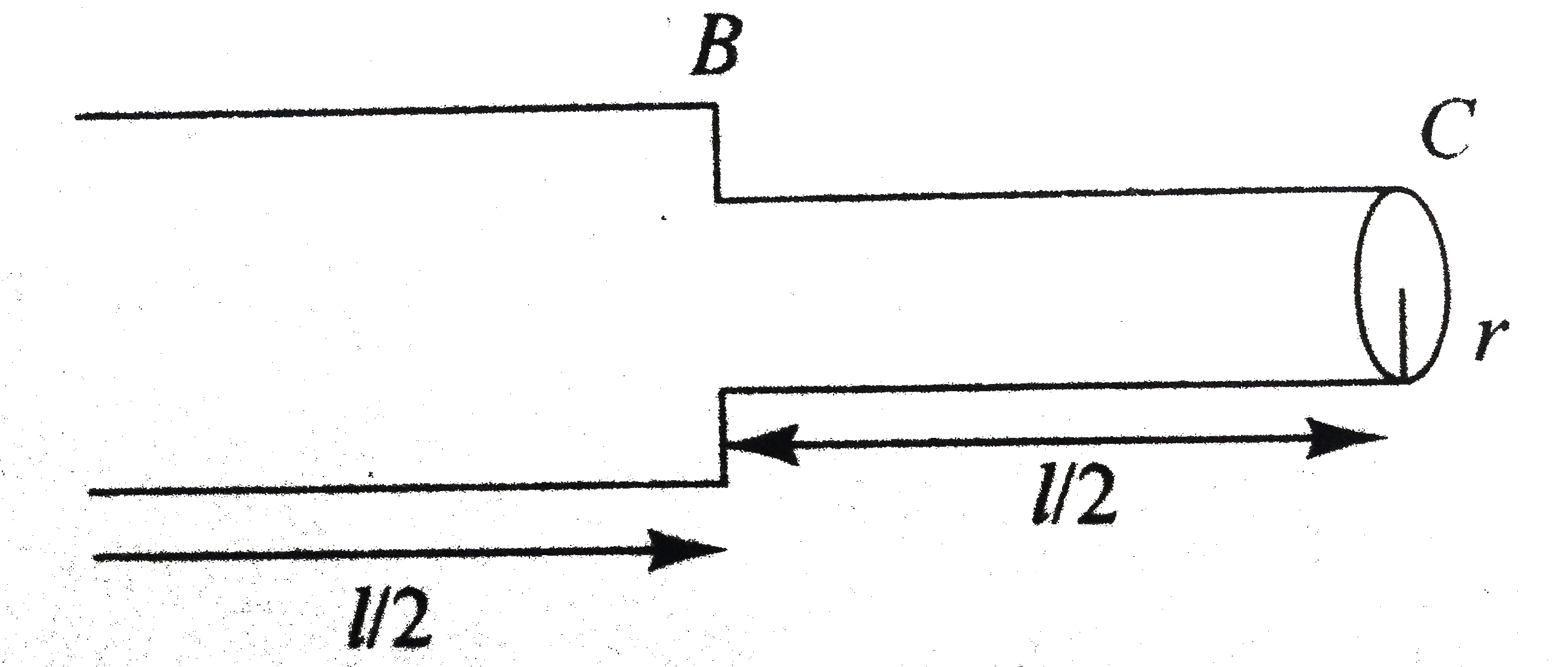 `V_(AB)/V_(BC) = (I_(AB)R_(AB))/(I_(BC)R_(BC)) = R_(AB)/R_(BC) = (rho l/(2[pixx4r^2]))/(rho(l/(2[pir^2]))) = 1/4` `("since" I_(AB) = I_(BC)`, "wire is of the same material") `"THEREFORE, option (a) is incorrect"`. b. `P_(BC)/P_(AB) = (I_2R_(BC))/(I_2R_(AB)) = (rho(l/(2[pixx4r^2])))/(rho(l/(2[pir^2]))) = 1/4` `P_(AB) = 4P_(BC).` `Therefore, option (b) is correct"`. c. `J_(AB)/J_(BC) = I/(pi xx 4r^2)/I/(pixxr^2) = 1/4`. "Therefore, option (c) is incorrect"`. d. `E_(AB)/E_(BC) = [(V_(AB))/(l//2)]/[(V_(BC))/(l//2)] = 1/4` . "Therefore, option (d) is incorrect"`. |
|
| 4173. |
How does the junction width change when a p-n junction is forward biased ? |
| Answer» SOLUTION :The junction width will DECREASE with FORWARD bias. | |
| 4174. |
Obtain the resonant frequency omega_(r) of a series LCR circuit with L = 2.0 H. C = 32muF, and R=10Omega. What is the Q - value of this circuit? |
|
Answer» Solution :`omega= (1)/(sqrt(LC))` `omega = (1)/(sqrt(2 xx 32 xx 10^(-6))` `omega = (1)/(8 xx 10^(-3))` `omega= 125 Hz` `Q = (1)/(R ) sqrt((L)/(C )` Substitution `= (omega L)/(R ) = (1)/(omega RC)` CALCULATION of Q = 25 |
|
| 4175. |
Alnico is preferred for making permanent magnets due to its : |
|
Answer» HIGH RETENTIVITY LOW COERCIVITY |
|
| 4176. |
Answer the following questions : (d) The small ozone layer on top of the stratosphere is crucial for human survival. Why? |
| Answer» Solution :The small ozone layer on TOP of the stratosphere is crucial for HUMAN survival because it absorbs most of the ultraviolet rays coming from SUN. If ozone layer had not been there then ultraviolet rays will also ENTER the earth and CAUSE danger to survival of human race. | |
| 4177. |
The phenomenon of superconductivity was discovered by ………………………. . |
| Answer» SOLUTION :Kammerlingh onnes | |
| 4178. |
Magnetic dipole moment of current carrying circular coil is ...... length of wire of coil. |
|
Answer» directly proportional `m= NIA = NI (pi R^(2) )` But length of wire, `l=2pi r` `therefore r=(l)/(2pi)` `therefore r^(2) = (l^2)/(4PI^(2) )` `therefore m= NI XX pi xx (l^2)/( 4pi^(2) )` `therefore` In `m= (Nil^(2) )/(4pi ) , (NI)/(4pi)` is constant. `therefore m prop l^(2) therefore` Option (C) is correct. |
|
| 4179. |
Consider the figure of question 8, the anglephi for which minimum deviation is produced will be given by |
|
Answer» `COS^(2)phi=(MU^(2)+1)/3` `ddelta/dphi=-(4dalpha)/dphi +2` `ddelta/dphi=0` `impliesdalpha/dphi=1/2` `alpha=sin^(-1)[1/mu sinphi]` `cos^(2)phi=(mu^(2)-1)/3` |
|
| 4180. |
The series limit wavelength of the Balmer series for the hydrogen atom is given by: |
|
Answer» 1/R |
|
| 4181. |
A stationary neutral particle disintegrated into a proton with kinetic energy T= 5.3MeV and a negative pion. Find the mass of that particle. What is its name. |
|
Answer» <P> Solution :By CONSERVATION of energy-momentum`Mc^(2)=E_(p)+E_(pi)` `O=vec(p_(p))+vec(p_(pi))` Then `m_(pi)^(2)c^(4)=E_(pi)^(2)-vec(p_(pi))c^(2)=(Mc^(2)-E_(p))^(2)-c^(2)vec(P_(p))` `=M^(2)c^(4)-2MC^(2)E_(p)+m_(p)^(2)c^(4)` This is a quadratic equation in `M` `M^(2)-2(E_(p))/(c^(2))M+m_(p)^(2)+m_(pi)^(2)=0` or using `E_(p)=m_(p)c^(2)+T` and SOLVING `(M-(E_(p))/(c^(2)))^(2)=(E_(p)^(2))/(c^(4))-m_(p)^(2)+m_(pi)^(2)` Hence, `M=(E_(p))/(c^(2))+sqrt(m_(pi)^(2)+(T)/(c^(2))(2m_(p)+(T)/(c^(2))))` From the table of masses we identifiy the particle as a `^^` particle |
|
| 4182. |
The molar heat capacity of a gas at constant pressure is equal to [R equiv the universal molar gas constant, gamma equiv the adiabatic constant] |
|
Answer» `gammaR` |
|
| 4183. |
In the figure shown, there is a magnetic field in the x - direction with |B| = 0.2 T , The loop has an area of 5 cm^(2) and rotates about line CD as z - axis. Point A rotates towards positvie x axis and intially x - axis is perpanedicular to the plane of the loop. If AE rotates through an angle of 30^(@) from the intial position in 0.2 seconds. The change in flux through the coil is |
|
Answer» 1.34 `xx 10^(-5)` Wb |
|
| 4184. |
If two wires of same length l and are of the cross-section A with young modulus Y and 2Y connect in series and one end is fixed on roof and another end with mass m makes simple harmonic motion, then the time period is |
|
Answer» `2pi SQRT((ml)/(YA))` |
|
| 4185. |
Two metal plates are separated by 2 cm. The potentials of the plates are -10 V and +30 V. The electric field between the two plates is |
|
Answer» 2000 V/m |
|
| 4186. |
In the figure shown, there is a magnetic field in the x - direction with |B| = 0.2 T , The loop has an area of 5 cm^(2) and rotates about line CD as z - axis. Point A rotates towards positvie x axis and intially x - axis is perpanedicular to the plane of the loop. If AE rotates through an angle of 30^(@) from the intial position in 0.2 seconds. The induced current in the upper part of the coil flows from |
|
Answer» A to C |
|
| 4187. |
If size of particle which scatters the light is ....... it is called Rayleigh scattering. |
|
Answer» SMALLER than the WAVELENGTH of incident light. |
|
| 4188. |
Give the expression for linear width of central maximum. |
| Answer» Solution :Linear width of CENTRAL maximum `=2((LAMBDA D)/(d))`. | |
| 4189. |
(a) Draw the plot of binding energy per nucleon (BE/A) as a function of mass number A. Write two important conclusions that can be drawn regarding the nature of nuclear force. (b) Use this graph to explain the release of energy in both the processes of nuclear fusion and fission. (c) Write the basic nuclear process of neutron undergoing beta-decay. Why is the detection of neutrinos found very difficult ? |
|
Answer» Solution :(a) The plot of binding energy per nucleon (BE/A) as a function of mass number (A) is shown in Fig. 13.04. Two important conclusions which can be drawn regarding the NATURE of nuclear force are : (i) From the constancy of the binding energy per nucleon in the range `30 lt A lt 170` we conclude that the nuclear force is short ranged ONE. A particular nucleon will be under the influence of only some of the neighbouring nucleons which come within the range of the nuclear force. (ii) As binding energy is always positive, it suggests that nuclear force is, in general, attractive in nature and much stronger than electrostatic repulsion between the protons. (c) Beta-PARTICLES (or electrons) as such are not present inside a nucleus. However, at the time of `beta^(-)`-decay a neutron decays into a proton, an electron and an antineutrino as per equation : `" "_(0)^(1)n to " "_(+1)^(1)p+ " "_(-1)^(0)e+ bar(nu) +Q` where mass and charge of antineutrino particle is ZERO. Out of the particles formed, the proton remains within the nucleus itself but electron along with anti-neutrino comes out of nucleus. It is this electron which is being emitted as beta-particle. It is very difficult to detect neutrino (V) and anti-neutrino (`bar(nu)`) particles because these are massless and chargeless. |
|
| 4190. |
The dimensional formula for compressibility will be |
|
Answer» `ML^-1T^-2` |
|
| 4191. |
What is the peak value of a 240volt A.C. supply? |
|
Answer» SOLUTION :`I_0=240sqrt2volt` or`I_0=`339 VOLT. |
|
| 4192. |
When two electrons enter into a magnetic field with different velocities, they deflect in different circular paths, in such a way that the radius of one path is double that of the other. 1 xx 10^7 ms^(-1)is the velocity of the electron in smaller circle of radius 2 xx 10^(-3)m. The velocity of electron in the other circular path is : |
|
Answer» `4 xx 10^(-7) ms^(-1)` |
|
| 4193. |
STATEMENT-1 Positive potential energy means that a positive work will be done on the body by the conservative force while returning to its reference position. STATEMENT-2 The absolute value of potential energy depends on reference. |
|
Answer» Statement-1 is TRUE, Statement-2 is True, Statement-2 is a CORRECT EXPLANATION for Statement-7 |
|
| 4194. |
Consider a uniformly charged ring of radius R and total charge Q. What is the magnitude of maximum possible electric field intensity on the axis of ring? What is the distance of point from the centre of ring at which the electric field is maximum? |
| Answer» SOLUTION :`Q/(6sqrt3pi epsilon_0 R^2), R/sqrt2` on both SIDES | |
| 4195. |
Consider the following statements in case of Young's double slit experiment. (1) A slit S is necessary if we use an ordinary extended source of light. (2) A slit S is not needed if we use an ordinary but well collimated beam of light. (3) A slit S is not needed if we use a spatially coherent source of light. Which of the above statements are correct? |
|
Answer» (1), (2) and (3) |
|
| 4196. |
What was the age of Suzanne and Jonathan? |
|
Answer» 8 & 9 YEARS old |
|
| 4197. |
The curve defined by sqrt((x)/(a))+sqrt((y)/(b))=1gives a part of parabola bounded by rectangle0lexlea,0leyleb. That has x - axis as tangent at A(a,0) and y- axis as tangent at B(0.b).On the basis of above information , answer the following questions :The focus of the parabola divides AB in ratio |
|
Answer» a :B |
|
| 4198. |
Mention two main points about light. |
|
Answer» Solution :There are TWO things about light : (i) It travels with enormous speed and its presently ACCEPTED VALUE in vacuum is `C = 2.99792458 xx 10^8 ms^(-1)`. For practical purpose, `c = 3 xx 10^8 ms^(-1)` it is the highest speed attainable in nature. (ii) Light travels in a straight LINE. |
|
| 4199. |
The curve defined by sqrt((x)/(a))+sqrt((y)/(b))=1gives a part of parabola bounded by rectangle0lexlea,0leyleb. That has x - axis as tangent at A(a,0) and y- axis as tangent at B(0.b).On the basis of above information , answer the following questions :The corrdiantes of focus of parabola is - |
|
Answer» `((AB)/(a+B),(ab)/(a+b))` |
|
| 4200. |
A converging lens has a focal length of 15 cm. Determine the position where an object can be placed so that the image obtained is twice the size of object. |
| Answer» SOLUTION :`-7.5, -22.5cm` | |
